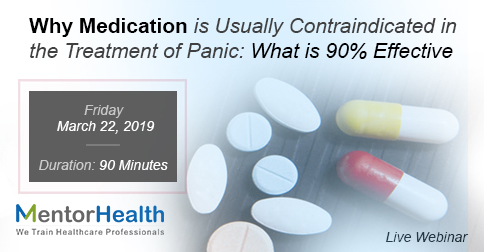
Overview:
Panic attacks are amongst the most dreaded of mental health problem. The most effective strategy for relieving panic attacks is interoceptive exposure (IE) which involves systematically bringing on the symptoms such that the person habituates and desensitizes to them.
Other mechanisms may also account for improvement (e.g. being in control of i). IE combined with other exposure therapy and coping strategies is 88% effective in completely eliminating panic attacks even after one and two year follow-ups. The remaining 12% still experience a significant reduction in the frequency and intensity of those panic attacks. Another strategy, mindful acceptance is very effective for a subset of patients.
For these individuals, it's nearly magic in eradicating a panic attack after which the frequency and intensity of subsequent attacks drop dramatically and sometimes even stop. The combination of these treatments easily leads to a 90% improvement.
Unfortunately when medication is added to IE and coping strategies, the effectiveness drops from 88% to 58% (Westen & Morris, 2001). Benzodiazepenes are contraindicated for numerous reasons, which will be discussed. However,SSRIs and SNRIs are very effective for a subset of patients and do not generally interfere with the more effective treatments.
Nonetheless, some patients experience an increase in panic attacks when the side-effects mimic panic thereby triggering an increase in attacks. Other concepts about the genesis of panic attacks and ways to treat them will be discussed.






